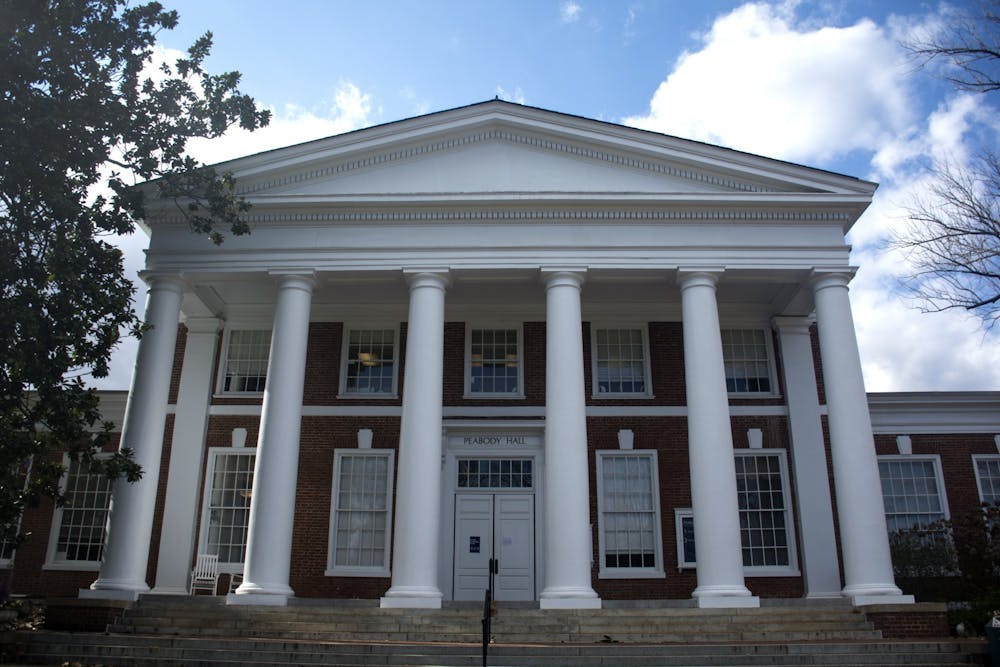Like many aspects of life at the University, the process of awarding transfer credit to students is colored by the elitism of a system that fails to serve the needs of an increasingly diverse and evolving student body. The University routinely fails to consider the needs of first-generation students and those in financially unstable circumstances. In light of the challenges presented by the COVID-19 pandemic, the University would be doing a gross disservice to the entire student body if it does not adjust its exclusionary and unreasonable transfer-credit policies.
As the policy currently stands, students who have already begun their first semester in the College cannot use transfer credit to fulfill their general education requirements. While students can apply transfer credit toward the total 120 credits that they need to graduate, they cannot use the credits to move further along in their completion of the required general education curricula. For example, this would prevent a student who wants to take a summer class at a local community college from using that class to fulfill any general education requirements, which usually take about four semesters to complete.
The arbitrary nature of this policy is evident when one considers the productive relationships that the University has already built with state community colleges, such as the Pathways program at Northern Virginia Community College. The University guarantees eligible Virginia students who complete a specific track of courses and maintain a certain grade point average admission to the University, as well as credit for their completed courses. If the University already has a process for accepting transfer credit from other institutions, then it is questionable that it cannot extend this opportunity to students who began their studies directly at the University. The University could reasonably place a cap on the number of transfer credits that could be counted toward general education requirements while still allowing students to alleviate some of the financial burden and time crunch of completing a four-year degree at the University.
The transfer credit policy is also especially restrictive towards foreign language classes, which are required for most College students. By the end of my first year, I knew that I would be studying abroad in Germany in the spring of my second year. In order to finish my language requirement before I went abroad, I wanted to take my last required semester of German over the summer at my local community college. Keep in mind that foreign language classes have highly uniform and structured curricula across the country, so the alternatives offered at community colleges are nearly identical to those taught at the University. After I had confirmed that the German Department would recognize my completion of the NOVA course, I went to the Transfer Credit Approval Office to get a signed form that would grant me credit. When I explained my situation to the administrator, they told me that I had misread the rules — transfer credit for foreign language courses is only possible when the courses are taken at a foreign institution. I was then instructed by this administrator that “NOVA is not Germany.”
As one of the largest public universities in Virginia, I would expect the University to be more accommodating toward students who, for any reason, want to take advantage of the financially sensible and substantive opportunities that community colleges provide. Other public schools like George Mason University and Old Dominion University are far more welcoming of transfer credit from other institutions. Perhaps this is because both of these schools have large commuter populations and a higher percentage of students over 25. This leads me to another point about the elitism that is fostered at the University and ingrained in its policies — the educational experience is highly tailored to young, wealthy, full-time students who can afford to spend their entire four years living on campus and devoting most of their time to attending classes.
The University often claims to be broadening its reach to students of diverse backgrounds — whether it be socioeconomic or racial diversity — but even the most mundane academic policies do not reflect this claim. Statistics have already shown that minorities and people in lower tax brackets have been hit the hardest by the pandemic. For students who have been adversely affected by COVID-19 but nevertheless wish to remain on track with their college education, taking classes at a community college over the summer or during the semester is perhaps the best option. In keeping with its mission, the University should allow students who take this initiative to apply these credits toward completion of their general requirements, especially at a time when in-person summer classes at a community college might be preferable to online education at the University.
As the situation with COVID-19 has evolved, many students and their families have been abruptly forced into circumstances where paying for college tuition is an afterthought or an impossibility. Family illness, unemployment, travel restrictions and many other factors have already prevented some students from being able to return to Grounds or continue their studies with the rigor that the University expects. If the University truly believes in its mission of making education more accessible to a wider range of people, especially during the aftermath of a destructive pandemic, it absolutely must reconsider these policies.
Caroline Fox is a rising third-year student in the College.
The opinions expressed in this column are not necessarily those of The Cavalier Daily. Columns represent the views of the authors alone.







